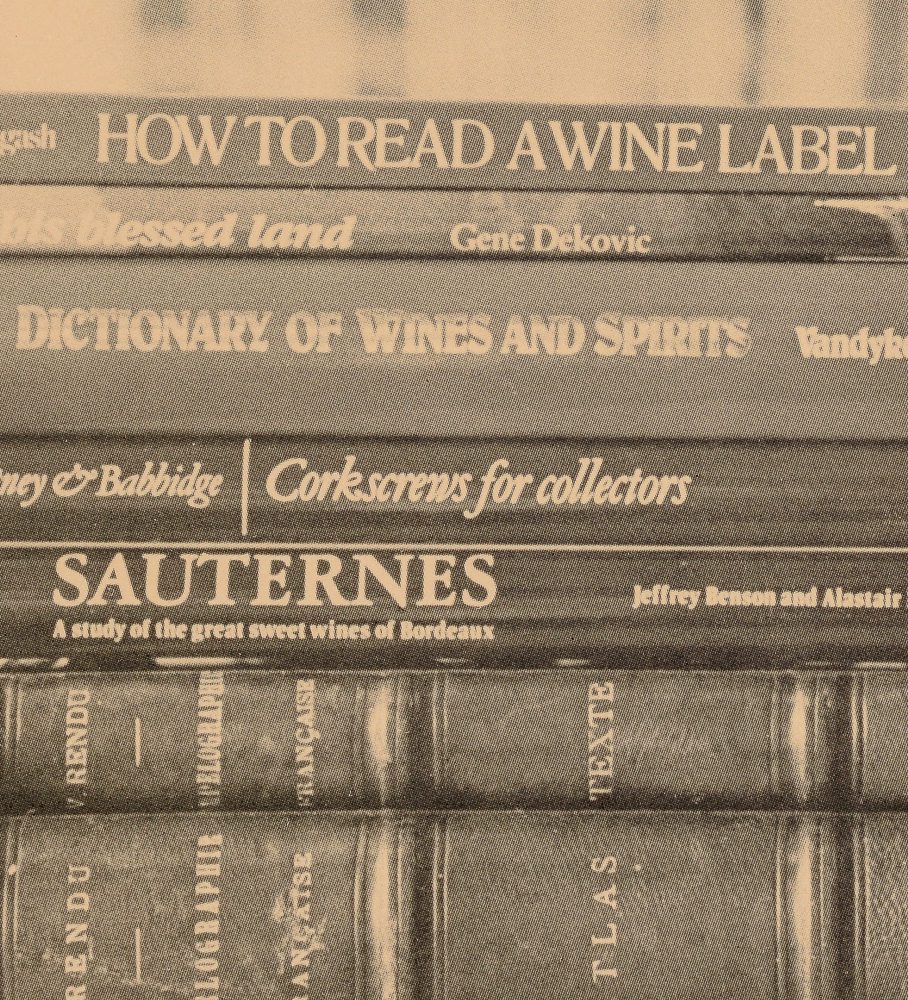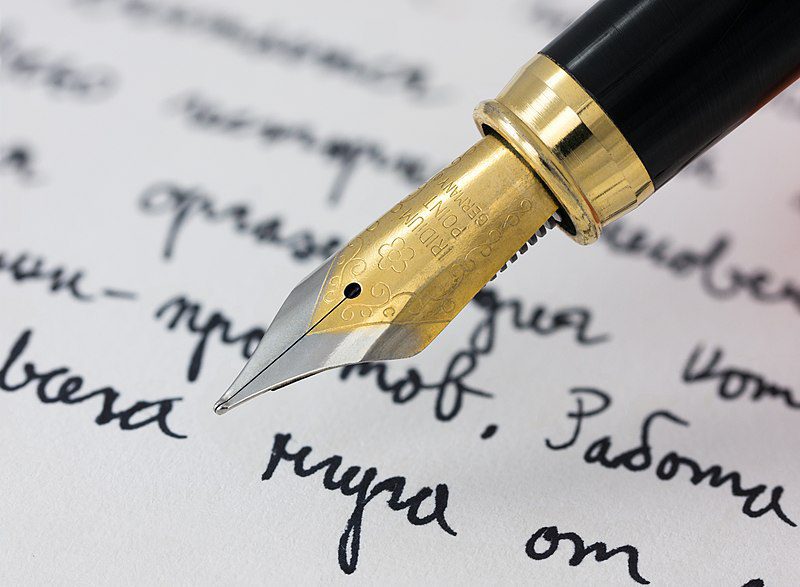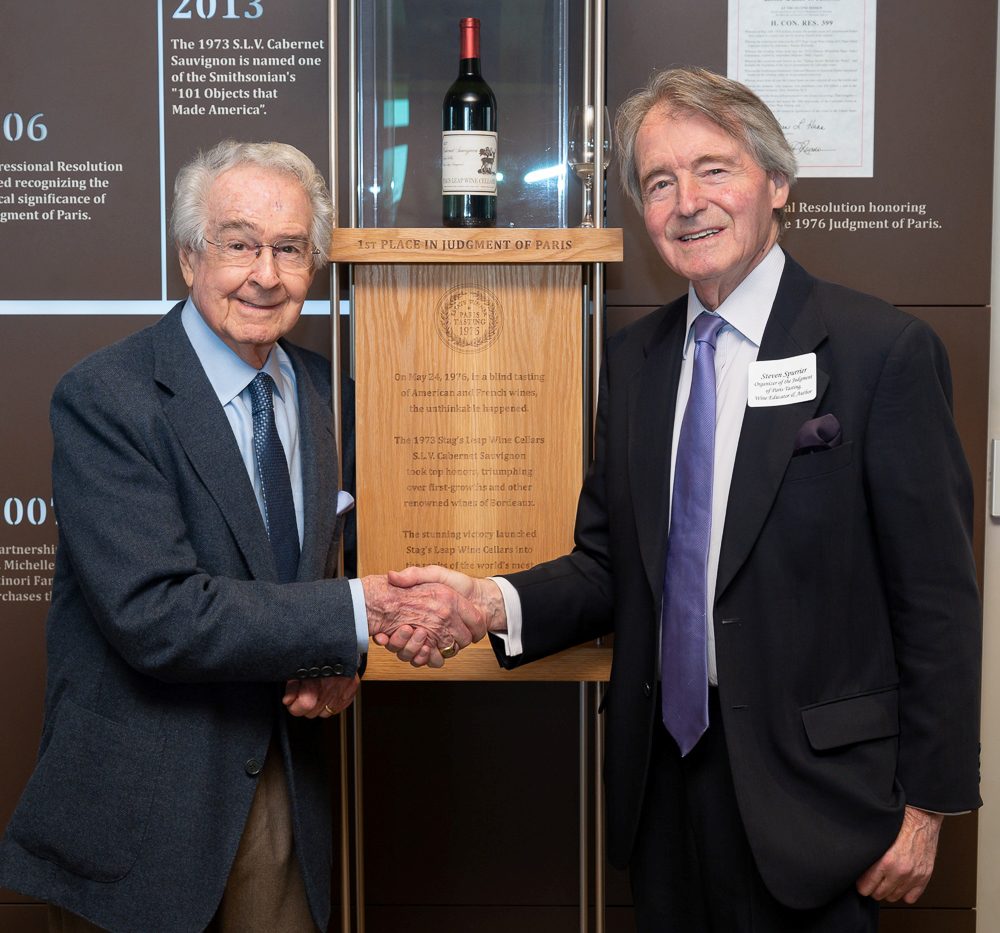Spurrier-Winiarski Wine Writer-in-Residence Award
Call for Applications
The application period for the 2025-2026 Wine Writer-in-Residence Award is now closed.
The UC Davis Library is proud to offer the Spurrier-Winiarski Wine Writer-in-Residence Award. The $50,000 award supports one three-month residency at UC Davis for research, writing, and publication of a long-form project on a current or historical aspect of wine. The award seeks to support a writer who exhibits a compelling individual voice, intellectual rigor, and most importantly, offers new perspectives to the canon of wine writing.
The Spurrier-Winiarski Wine Writer-in-Residence Award is created in recognition of Steven Spurrier and Warren Winiarski, friends and legendary pioneers in the wine world who valued the importance of wine writing to the elevation and greater understanding of making and appreciating fine wine. In addition to the resources available through the library’s collections on wine writing and related topics, the proximity of UC Davis to California’s premier wine making regions will afford the Resident networking and mentoring opportunities with California winemakers, winegrowers, and other wine industry and wine writing experts.
Award Overview

Eligibility
Emerging, mid-career, or established writers from academia, journalism, and/or traditional or non-traditional writing outlets, are eligible for the award. Candidates for the Residency shall be writers with a project requiring extensive access to the library’s general and special collections about wine and related topics, and who would benefit from physical proximity to UC Davis faculty and students, California wine makers, and others in the California wine industry.
There are no citizenship requirements for this grant. For non-U.S. based applicants, UC Davis can provide a support letter but no additional assistance with or sponsorship of a visa attendant with this award.
Requirements
Candidates shall provide a research plan for a book or other long-form project (e.g., Master’s or Ph.D. thesis, article series) on a current or historical aspect of wine. Possible topics include but are not limited to viticulture, wine making, history, design, health, environmental or scientific studies, and wine appreciation. The research plan may include academic, journalistic, or creative non-fiction proposals, but no fiction or poetry proposals will be considered. We will accept one application per candidate.
Residency
The three-month Residency must be completed during calendar year 2026. Grantees would be expected to finalize the dates of their residency well in advance to allow the UC Davis Library to pull materials from storage as necessary.
Award monies are to be used for costs such as, but not limited to, travel, accommodations, and incidentals associated with research and publication.
In addition to the grant itself, the library will provide recipients with modest office space within the library for the duration of their stay. While on campus, the recipient will enjoy full access to our electronic resources; the library is unable to provide off-campus access to non-affiliates. Recipients are welcome to use materials in the circulating collection in the library or, depending on individual circumstances, may be eligible to apply for a library card. Recipients are not eligible for access to interlibrary loan services.
The library is unable to help recipients with making travel arrangements, identifying housing in Davis, arranging parking on campus, or with access to employee breakrooms.
At the conclusion of the Residency, the Resident will complete a 1000-word statement detailing the resources used during the Residency and summarizing the research and writing progress. Within six (6) months post-Residency, the Resident must submit to UC Davis a copy of a prepared manuscript (minimum 2,500 words) based on research conducted during the Residency and its intended publication purpose (e.g., book chapter, thesis chapter, conference paper, journal article, magazine article).
Review Process
Applications will be reviewed through a peer-panel process. The panel may include representatives from the following: Warren Winiarski Wine Writers Collection Advisory Board, UC Davis Library, and Académie du Vin Library. The recipient will be selected based on the following criteria:
- The excellence of the submitted writing sample
- The strength of the proposed project
- The candidate’s ability to demonstrate a history of project completion
Application Guidelines
Applications are due October 30, 2025, and should consist of the following four components:

- Application cover sheet including:
- Project title
- Project abstract (200-word limit)
- How the candidate learned about the award
- Biographical statement (400-word limit) including:
- Educational and professional background and expertise
- Writing experience
- Publication history, or unsigned published works with proper verification
- Project proposal (1,000-word limit) including:
- Project title
- Specific examples of UC Davis Library resources – such as books, pamphlets, maps, and/or manuscript collections – that will inform the project, especially materials housed in Archives and Special Collections
- Description of writing project, target audience, and how the project will:
- Add new perspectives to the body of wine writing
- Use UC Davis Library resources to lead to a deeper understanding of wine
- Advance wine literacy and knowledge
- Writing sample (8,000-word limit)
- Sample of published or unpublished work (more than one sample is allowable, but no more than 8,000 words total)
Submission Instructions
- Prepare all application materials, except the writing sample, as a single PDF (cover sheet, biographical statement and project proposal).
- Prepare the writing sample as a single, separate PDF.
- Please attach the two PDFs in an email and submit to Rice Majors, Associate University Librarian for Scholarly Resources (ramajors@ucdavis.edu), with the subject line: Spurrier-Winiarski Wine Writer-in-Residence Award Application – [applicant name].
Applications are due October 30, 2025. Award results will be announced in early 2026.
About Our Distinctive Collections
The UC Davis Library food and wine collection, which holds more than 30,000 wine books and special collections of rare manuscripts on wine and food dating back to the 13th century, includes:
- Advertising, including wine labels
- Ampelographies
- Archival and manuscript collections
- Artwork
- Audio and video recordings
- Bibliographies
- Conference and symposia proceedings
- Cookbooks
- Dissertations and theses
- Historical studies
- Journals — scientific and technical
- Magazines
- Maps
- Menus
- Monographs such as scientific and technical books
- Pamphlets
- Technical reports
- Trade publications
- Travel guides
- Newsletters
- Photographs
- Web archives
- Wine auction catalogs
The library relies on remote storage at the UC Shared Library Facility-North (SLF-N) as a secure preservation environment for many of its rare materials.
Many of our unprocessed collections are represented in the Online Archive of California. Those that are not yet represented in OAC are briefly described in this document [download spreadsheet]. The library is pleased to answer questions about relevant unprocessed hidden collections in advance of application submission, and will discuss potential access to these materials with recipients based on their research questions or subject interests.
Inspiration for the Award

The impetus for the Writer-in-Residence program emerged from the long friendship between Steven Spurrier and Warren Winiarski, which flowered over the years following the famed “Judgment of Paris” tasting in 1976. In addition to their mutual love for fine wine, the two friends shared a passion for fine wine writing.
Spurrier, the organizer of the Paris tasting, was himself a wine writer whose personal goal as a communicator was to expand the universe of wine lovers. He recognized that good writing about wine had the potential to enhance the experience and enjoyment of wine and thus he supported and encouraged other wine writers. Spurrier also found a way to continue that support after his death. Prior to his passing, he conceived and helped to establish Académie du Vin Library, a firm dedicated to the “publication of books about wine appreciation and enjoyment.”
Warren Winiarski, best known as the winemaker who crafted the 1973 Cabernet Sauvignon which took first place amongst the red wines at the Paris tasting, gave much credit to UC Davis for facilitating his success. Although he was largely a self-taught winemaker, the university’s technical publications on winemaking and winegrowing became his indispensable practical-applications “bibles.”
Despite the importance of the technical advances in agriculture and winemaking occurring at the time, Winarski believed that these were only one of the chapters in the story of California’s post-Prohibition success. The eloquence and insights of wine writers “shined a path out of the Prohibition wilderness” and helped to engender the environment which nurtured his own success and the “renaissance” of California’s fine wine industry as a whole. As Winiarski (a man who knew how to turn a phrase himself) put it, “Good words make good wines.”
In recognition of the contributions of these writers, Warren Winiarski and the Winiarski Family Foundation provided the endowment establishing the Warren Winiarski Wine Writer Collection at the UC Davis Library in 2018. The papers of many of the most important wine writers of the 20th and 21st centuries (among them Hugh Johnson, Jancis Robinson, Dorothy Gaiter and John Brecher, Paul Lukacs, Bob Thompson, and Steven Spurrier) have been collected, preserved, and archived within the Warren Winarski Wine Writer Collection. The collection provides one of the many valuable resources in viticulture and enology available to the Resident through the UC Davis Library.
Warren Winiarski passed away on June 7, 2024. The library is honored to continue the work of advancing research related to wine through the Spurrier-Winiarski Wine Writer-in-Residence Award.